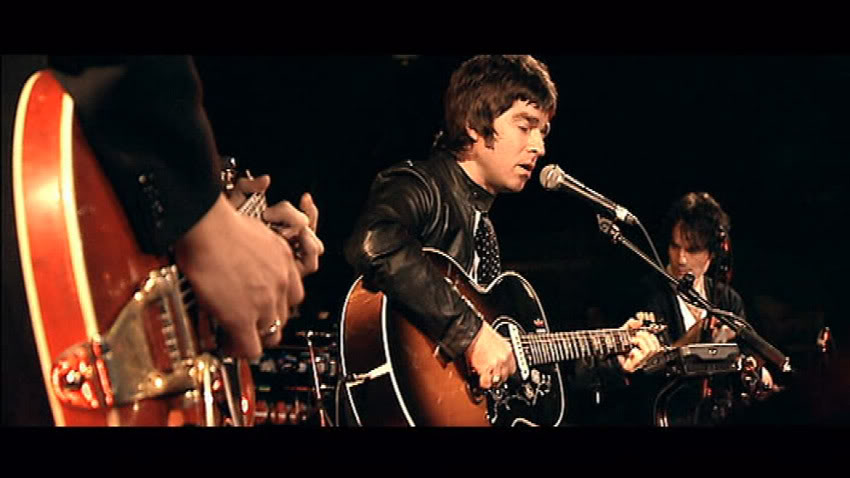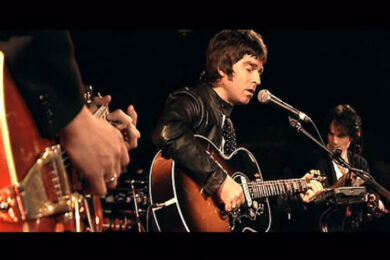It’s 1992, down a Manchester city centre back-street called Little Peter Street. You are leaving The Boardwalk, a combined rehearsal room and gig venue, where local bands play to small crowds alongside better known alternative acts from further afield – Sonic Youth, Husker Du and the like – while Fridays are given over to ex-Hacienda DJ Dave Haslam’s superb Yellow night, a no-rules mish-mash of soul, house and guitar bands. Maybe you’ll be up there later; you often drag the rest of the lads along too.
You turn left, then left again, then right onto Whitworth Street and observe the queue snaking along the opposite corner and into The Hacienda, perhaps past its peak, but still pumping out cutting edge dance and techno sounds to packed crowds. You walk straight ahead and pass The Venue on your left, a gnarly indie / punk club and The Brickhouse on your right, still hosting an assortment of cracking disco and soul nights.
Cross Oxford Road and arrive at the entrance of India House. You put down your guitar case and fumble in your pocket for your keys. You are Noel Gallagher and your walk home from rehearsal through the city centre has taken around four or five minutes, maximum. Maybe you could stay in tonight, or maybe head out for a drink a couple of minutes away in any of the venues you’ve just passed. Or head on out to the student boozers down Oxford Road for some indie sounds, or up to Legends (where the Mondays filmed the video to ‘Wrote For Luck’), or maybe even out to one of the new mixed gay / straight bars that appearing in Canal Street round the corner for a bit of cheesy Italo house.
You don’t mind a bit of that stuff, there are some great tunes; especially ‘Feel The Groove’ by Cartouche, brilliant. You’ve had the band rehearsing a cover version of that lately, just a repetition of the “Better let you know / it’s time for you to go” line over a mental wall of My Bloody Valentine feedback and Stooges riffing, but none of them like it, and it’s soon to be dropped from the set.
Anyway, whatever you decide to do, there’s pretty much any kind of music you can think of being played loud within a short walk, and you’re into it all.
Cartouche – ‘Feel the Groove’
Oasis cover version – demo recording
Noel Gallagher has always been great at spinning a myth, and Oasis’s four-or-five-ordinary-lads-from-Burnage-who-shook-the-world back story has certainly played well in the papers over the years. The thing is, while that’s a roughly accurate description of the rest of the band, it barely describes Noel, who had got out of the (actually quite leafy and pleasant) suburb and right into the city centre music-biz action years previously.
India House was, and remains, something of a key institution for sharp youngsters on the make in Manchester. Adapted from an old warehouse into social housing flats, long before the current fad for city centre living, it provided a means of being right in the middle of the city action, but incredibly cheaply and with a landlord sympathetic to the fluctuating incomes of people struggling away in bands, promoting club nights and working in the theatre. (All of which could be supplemented with signing on the dole and a bit of low level drug dealing, if so desired.)
The flats themselves are not palatial, but are a much nicer proposition from the kind of high rise horror it’s all to easy to end up in in such circumstances. There are some nutters in there for sure, but the tenant list over the years has somewhat suspiciously favoured the city’s well-connected hipsters, including members of The Doves and Stone Roses frontman Ian Brown. The whisper around town has always been that if you know who to ask, and how to ask, you can get bumped up the waiting list.
Whether there’s any truth to that rumour or not, there was a certain cut-price boy-or-girl-about-town bohemian lifestyle to be had, and Gallagher grabbed it with both hands. By ‘91 he was well connected with many Manchester music scene movers and shakers (if not quite aristocracy). Having worked regularly as part of the Inspiral Carpets road crew, he’d travelled widely with them and befriended people like Johnny Marr – an important early champion of Oasis – and Mark Coyle, the Carpets’ sound man who later go on to produce Oasis’s first album.
The point of all this, of course, isn’t to suggest that Noel is hiding some kind of privileged past, as you can do all the above and still be horribly skint. It’s rather to point out that there’s always been something somewhat frustrating about Oasis’s self-imposed we-only-make-proper-songs-on-proper-instruments-for-the-milkman-to-whistle stance, especially when you know what broad musical exposure and taste the elder Gallagher actually has.
In an odd piece of serendipity, at more or less exactly the moment on Friday 28th of August that Noel Gallagher was announcing his departure from Oasis, the presses were rolling out the following day’s Guardian Guide, containing an interview with Jay Z, in which Gallagher’s musical broad-mindedness was discussed.
Referring to the storm in a tea cup surrounding Jay Z’s headlining performance at the 2008 Glastonbury festival, and Gallagher’s petulant complaint that “Sorry, but Jay-Z? Fucking no chance. Glastonbury has a tradition of guitar music. . . I’m not having hip-hop at Glastonbury. It’s wrong.” Jay Z avoided a war of words with the Oasis man, simply electing to hand Gallagher’s ass to him by turning in an all-time festival highlight show, cheekily opening with Oasis’s ‘Wonderwall’:
Jay Z playing ‘Wonderwall’ at Glastonbury:
Away from the stage, Jay Z simply said that he’d like the opportunity to hook up with Noel and teach him about hip-hop, telling The Guardian this weekend that one of the key records he’d play him would be NWA’s Straight Outta Compton.
Gallagher has no-one but himself to blame for how this all makes him look: uptight, out-of-touch, conservative and backward-looking, next to Jay Z’s gracious magnanimity and open-mindedness. This makes the Jigga’s choice doubly ironic, given that Straight Outta Compton has been cited by Gallagher as his favourite hip hop record. Indeed, as he told Rolling Stone in 1997, it was a drum loop from that LP that formed the basis of early versions of Oasis’s ‘D’You Know What I Mean?’
However, the genuinely exciting prospect of Oasis cranking out their brutalist guitar noise over Dr. Dre beats never saw the light of day, Gallagher later ruefully remarking that: “It’s difficult when you’re in a band with four other people who’ve got no concept of black music, who just can’t see anything further than the Beatles. . . It can get a bit soul-destroying in the studio, you know, trying to play somebody a drum beat from an N.W.A record. And everyone’s just looking at you like you’re fuckin’ speaking French or something.”
Obviously, it’s a fool’s errand to dig through old quotes of wildly successful rock stars looking for consistency, and plainly, Gallagher’s interest in hip-hop is strictly musical. As well as the Glastonbury spat, he’s on record as saying: “I despise hip hop. Loathe it. Eminem is an idiot and I find 50 Cent the most distasteful character I have ever crossed in my life . . . I just don’t like the dragging women around on dog leads and all that stuff.”
While a disapproval of the more crassly sexist aspects of hip-hop culture is far from a bad thing, both that quote and the Glastonbury outburst delimit what has always constrained Gallagher creatively: a sort of mono-cultural outlook that treats straightforward blokes-with-guitars pop rock as “proper” and everything else as somehow fringe and perhaps best avoided.
However, imagine an alternate timeline where Oasis, at their pop success peak in the mid-90s, with What’s the Story? (Morning Glory) – the third biggest selling LP in UK history under their belts – had really followed Noel’s Beatles obsession to its logical conclusion and got seriously experimental. It’s a peculiar reality that at just the moment when the music press were really beginning to mock the horrible phenomenon of “Noelrock” – bands like Cast, Ocean Colour Scene and so on, who Noel volubly praised in interviews – he was jointly responsible, with the Chemical Brothers, for one of the weirdest number one singles in UK chart history.
Chemical Brothers feat. Noel Gallagher – ‘Setting Sun’
‘Setting Sun’ is as Beatles-influenced as anything else Gallagher has been involved in – its debt to ‘Tomorrow Never Knows’ is substantial and obvious – but it does far bolder things with that influence than Gallagher ever managed in his day job.
It would be something of a stretch to suggest that Noel hasn’t been a willing participant in Oasis’s musical conservatism. This, after all, is the man whom the rest of the band gave the not-entirely-friendly nickname “The Chief” and who had made it a condition of his joining in the first place that they only play his songs and do everything as he told them to, for which in return they would become rich and famous.
Furthermore, love or loathe the band’s records – and I’m not especially keen, I have to say – you have to respect the keen intelligence at work in knowing exactly which elements to put together and which to discard in order to become the biggest British band of the last 20 years.
However, it’s sometimes appeared that Noel has felt somewhat shackled by the limits of his own creation. As recently as the Dig Out Your Soul sessions, he was wearily trying to drag Oasis if not into the present, then at least out of 1966, with little success: “Liam is very institutionalised by being in Oasis,” he explained. “He has an irrational fear of keyboards. This is the man who thought we had gone too dance when I wrote ‘Wonderwall’ because the drums didn’t go boom-boom bap, boom-boom bap.”
Ironically, Noel’s departure from Oasis means he leaves at a genuinely intriguing point. Having become a massive champion of Future Sound Of London’s latest incarnation as Amorphous Androgynous since discovering their A Monstrous Psychedelic Bubble Exploding In Your Mind mix CD, he asked them to remix what now stands as the final Oasis single, ‘Falling Down’. Even more remarkably, the track they turned in, a four-part 22-minute psych-rock odyssey, was judged too great to stick on a B-side, and became the final actual release under the Oasis name, in a 12” vinyl edition aimed squarely at the DJ market.
‘Falling Down (Monstrous Psychedelic Bubble Mix parts 1 & 2)’
‘Falling Down (Monstrous Psychedelic Bubble Mix parts 3 & 4)’
If Noel’s departure from Oasis hasn’t been so traumatic as to change plans, his next live appearance will be joining Amorphous Androgynous onstage at the sci-fi prison planet-resembling techno hangar Matter in the O2 complex on September the 17th. It seems unlikely they’ll be doing an acoustic set featuring ‘Don’t Look Back In Anger’.
Here’s hoping the Oasis split, and the fact that Gallagher surely has nothing left to prove in terms of record sales and big gigs, and surely doesn’t need the money, inspires Gallagher to pursue his more wayward interests. Because given that Liam is almost guaranteed to grind out the hits like an end-of-the-pier entertainer from now til doomsday, the last thing we need is Noel doing the same.
The fans may well already be praying for the band to reform; me, I’m looking forward to a Reformation.



